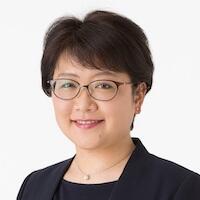Reflections on the Assassination of Former Prime Minister of Japan Shinzo Abe
At the APARC Japan Program, we are deeply saddened by the news of the assassination of Shinzo Abe, former prime minister of Japan and still an influential political figure domestically and globally. We strongly condemn this senseless act of violence. We also sincerely hope that we will all strive to stop the 21st-century world from conjuring the memories of a pre-World War II days, bringing back the invasion of a sovereign nation for no reason (Russia’s invasion of Ukraine), violent attack on democracy based on disinformation (the January 6 uprising in the United States), and assassination of an influential leader of a stable democracy (the death of Abe). Having served longer than any other prime minister in Japanese history, Abe had his admirers and detractors. Regardless of one’s evaluation of his legacy, however, this act of violence needs to be condemned in no uncertain terms, and every effort should be made to prevent similar acts of terror.
Abe was one of the most transformative political leaders in modern Japanese history, whose foreign policy accomplishments made him a leading protector of the liberal international order at a time when China’s authoritarian model and the U.S.’s isolationist tendencies began to threaten the rules-based international order. He consolidated U.S.-Japan relations by deftly handling the polar opposite personalities of Presidents Obama and Trump during his second term. He made lasting contributions to international politics, having invented new influential concepts such as Free and Open Indo-Pacific and Data Free Flow with Trust, which were later embraced by many democratic allies in the region, most notably by the United States.
Sign up for APARC newsletters to receive our experts' commentary and analysis.
Abe's diplomatic prowess was predicated on his domestic power base, evidenced by six straight victories in national elections during his second term. Even after stepping down as Prime Minister, he wielded powerful influence in national politics, particularly in defense and foreign affairs. His passing will change Japanese politics in a number of ways.
Most immediately, internal politics within the ruling Liberal Democratic Party (LDP) will be shaken up. The LDP was poised to win the Upper House election held on Sunday, July 10, but the margin of victory likely grew because of national sympathy for Abe’s death. With this victory, Prime Minister Kishida now has “the Golden Three Years” in which he does not need to hold any national election. This puts him in a position to execute his policy agenda.
In the economic realm, Prime Minister Kishida no longer has to go out of his way to defend Abenomics and emphasize that his economic policy is an extension of Abe’s. He also does not face the same level of internal pressure to increase the defense budget, take a strong stance against China, and work toward a constitutional revision. At the same time, with Abe no longer uniting the conservative constituencies for Kishida, they might become more critical of Kishida, pushing him to pursue Abe’s policy agenda such as constitutional revision.
Abe’s faction is the largest in the LDP, and it will have to find a successor who can keep it together and exert influence within the LDP. Prime Minister Kishida will likely be emboldened to shake up the cabinet and bring in people he finds useful. He no longer needs to consider Abe’s preferences, which he did to a certain extent in forming his first cabinet. This will likely lead to surprising appointments in the next cabinet shuffle such as a long-term partner of Abe’s becoming Kishida’s close ally.
The U.S.-Japan alliance will remain strong, and Americans should not expect any major changes that would impact them directly in the short term. A stable leadership in an important ally is always welcome, and somebody like Kishida who is sensible and careful, if not dynamic, makes for a reliable partner. Abe’s interpersonal skills are hard to replicate but the geopolitical environments will continue to push American and Japanese leaders to work closely and remain friendly.
One concern for Japan is that a copycat event is common after a violent incident like this. The fact that the gun used in the assassination was made by the perpetrator speaks to the efficacy of gun control measures in Japan but it also serves as a warning that others with similar skills and intentions could use hand-made guns for other acts of violence. Japan experienced a wave of political violence in the period leading up to World War II, and the political instability provided fertile ground for the destructive military expansion that resulted in the devastating defeat in 1945. It might seem too early to worry about such dire outcomes, but we can never be too careful in working to preserve our precious democracy. The United States is learning this lesson the hard way, as it has had to deal with all the demagogies and disinformation that seem to persist with no end in sight.
Shinzo Abe was killed while on a campaign trail in the last few days of the Upper House election period. While the assassin’s motivation was more personal than political, it is still alarming that election campaigns were the site of this violent attack. If this can happen in Japan, widely viewed as the least likely place for violence in general and gun violence in particular, then it could happen anywhere to undermine democracy. To honor Abe’s legacy, we all need to reassert our resolve to protect our democracy in Japan, the United States, and all over the world.

Kiyoteru Tsutsui
Read More
Abe was one of the most transformative political leaders in modern Japanese history, and his passing will change Japanese politics in a number of ways, most immediately shaking up internal politics within the ruling Liberal Democratic Party. To honor Abe’s legacy, we all need to reassert our resolve to protect our democracy in Japan, the United States, and all over the world.






























